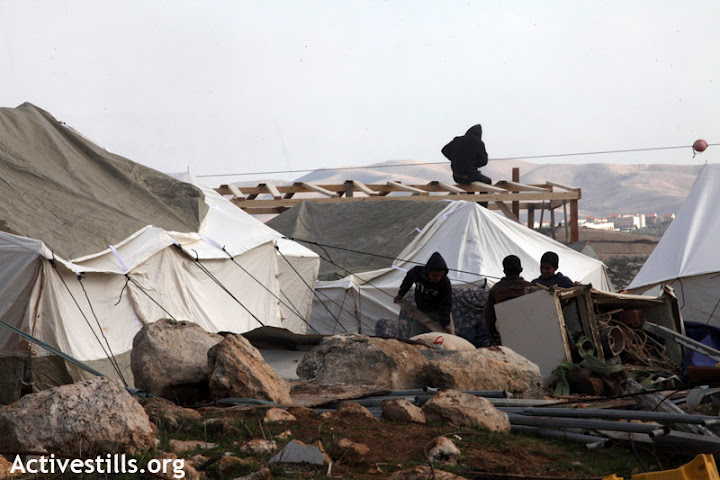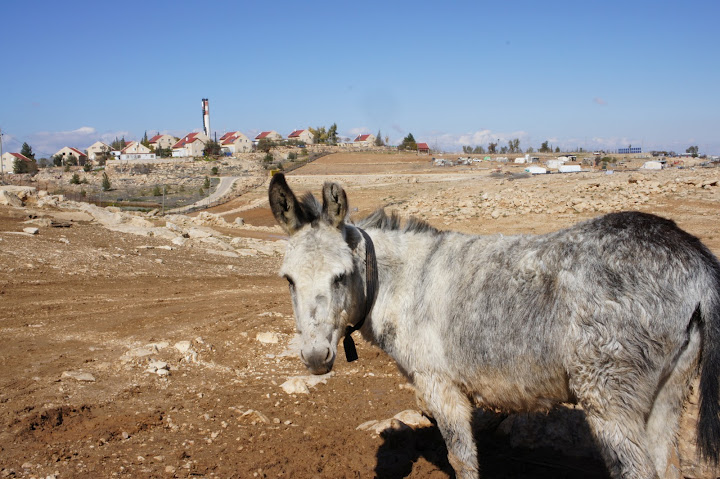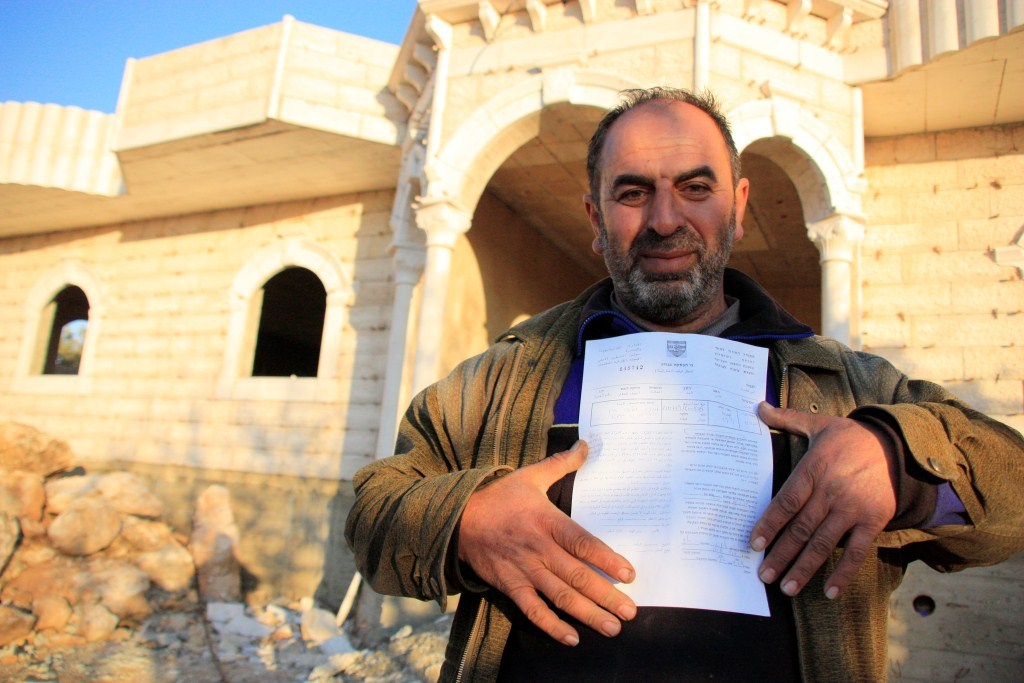Tag: House Demolition
-
To exist is to resist! Rebuilding homes in Anata
27 January 2012 | Chroniques de Palestine How do you continue your life after your home had been demolished? How do you cope with the uncertainty of having a roof for your children and protect them from the cold and rain? On the 23rd January, 6 homes of the community of the Arab al Jahalin,…
-
“We die a little bit inside us each time”: 2 more homes demolished in Bedouin village of Umm Al Kheer
by Tom 26 January 2012 | International Solidarity Movement, West Bank Israel demolished the homes of two families in the Bedouin village of Um Al-Kheer in the South Hebron Hills last week, on Wednesday January 25th. The demolition team arrived with a bulldozer at 9:00 in the morning together Israeli soldiers and police. Villagers reported…
-
Eight homes ordered to be demolished in Khalit Al-Dar
by Jack English 17 January 2012 | International Solidarity Movement, West Bank On January 4th, an Israeli military commander served 8 demolition orders in the town of Khalit Al-Dar, just south of the city of Al-Khalil, also known as Hebron. The reason given for issuing demolition orders to the families is that they have built…



